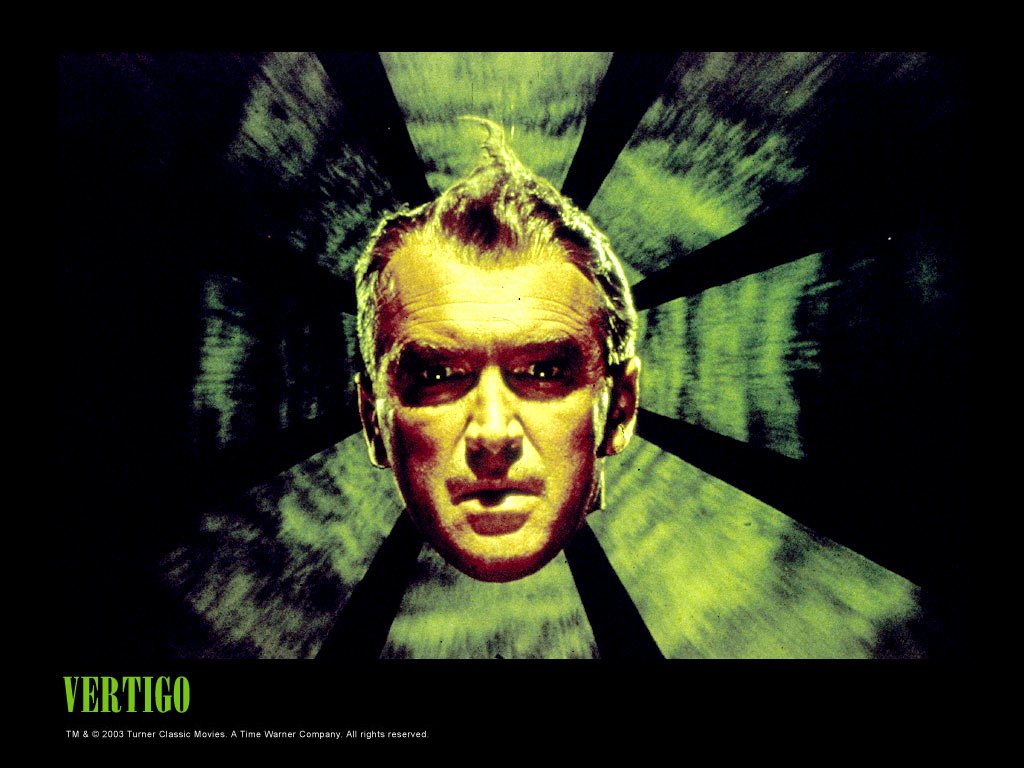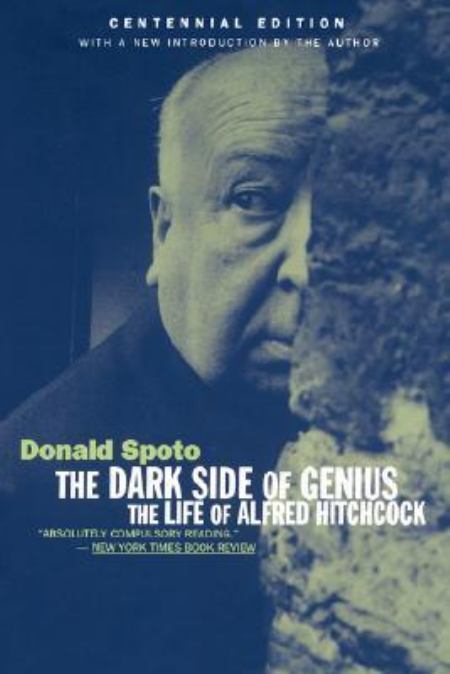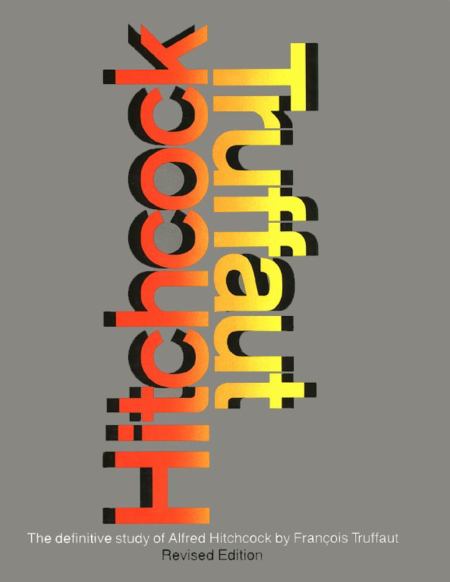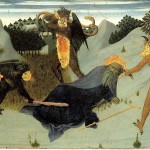
I almost went to see Hitchcock’s Vertigo in glorious 70mm last week. I admit I don’t know how watching it in that format would differ from watching it on DVD either.
Now that I have that off my chest, did you read the heartwarming story of Hitchcock’s deathbed conversion in the Wall Street Journal last year? You must have. Admit it, you rejoiced with the angels at return of one of the lost sheep.
Mark Henninger, SJ’s piece, “Alfred Hitchcock’s Surprise Ending,” where this is mentioned, is a response to Hitchcock biographer Donald Spoto, author of Dark Side of Genius (Who apparently is a fool who says “There is no God” in his heart):
“One of Hitchcock’s biographers, Donald Spoto, has written that Hitchcock let it be known that he ‘rejected suggestions that he allow a priest . . . to come for a visit, or celebrate a quiet, informal ritual at the house for his comfort.’ That in the movie director’s final days he deliberately and successfully led outsiders to believe precisely the opposite of what happened is pure Hitchcock.”

It turns out Hitchcock didn’t only allow a priest in to comfort him during his last days. Worse, he allowed two priests. Even worse, they were Jesuits!
Thus we find Henninger defending a tradition that Constantine first made famous:
“Some people find these late-in-life turns to religion suspect, a sign of weakness or of one’s ‘losing it.’ But nothing focuses the mind as much as death. There is a long tradition going back to ancient times of memento mori, remember death. Why? I suspect that in facing death one may at last see soberly, whether clearly or not, truths missed for years, what is finally worth one’s attention.”
However, there’s one little problem!
Hitchcock never stopped being a Catholic. You see, in order to have a deathbed conversion (technically a reversion in his case) you either have to be a non-believer, or you have to cease practicing at some point in your life.
[Click here for all the other posts in the Famous Atheists Who Weren’t Atheists series.]
Neither is the case with the director of I Confess. Peter Chattaway has this to say about him in his piece “A Cranky Catholic“:
“Nevertheless, Hitchcock was a practicing Catholic for most of his life. His wife Alma, a film editor, converted to Catholicism before their marriage in 1926, and they worked and lived together until his death in 1980. They attended Mass weekly, and they quietly made several generous donations to Catholic churches and charities. In 1952, their daughter Patricia married the grandnephew of the late Cardinal William O’Connell, who had been a powerful archbishop in Boston.”
OOOPS!

It appears Hitchcock also outwitted his Jesuit confessor. Which brings me to his famous book-length interview with the French film-director Truffaut. Truffaut does not hold back in pushing elements of Catholic theology onto Hitchcock. The director of Vertigo is reticent, pushes back a bit, yet still talks of himself in terms of “We Catholics.” This is what makes Hitchcock/Truffaut such a compelling read.
Which brings me to Deleuze, who in his Cinema 1 says, “There is, however, no need to make Hitchcock a Platonic and Catholic metaphysician.” But why is there such an urgent need to suppress it? Why are there no substantial theological readings of the films of the I Confess director? There is, however, a chapter about him in the book Afterimage: The Indelible Catholic Imagination of Six American Directors (Scorsese, Hitchcock, Capra, Ford, Coppola, De Palma).
https://www.youtube.com/watch?v=ZbecuIiqtjg











